Giant garlic onion Anzur: description and characteristics
Since ancient times, Anzur mountain onion has been used in folk medicine to strengthen the immune system, improve metabolism, and lose weight. It helps cure colds and even impotence. It is unpretentious in cultivation and tolerates unfavorable climatic conditions well. Always justifies the financial costs.
Let's consider what is unique about this plant, how to grow it and use it.
Description of onion-garlic Anzur
The plant appears first in the garden beds in early spring.. Grows in the form of a bush. At first it resembles a tulip, but over time it becomes like garlic. The stem is powerful, with slightly protruding veins, from 0.3 to 1 m in height. The onion has 3-7 green leaves, belt-shaped and 0.5 to 2 cm wide. They are rough to the touch along the edges and reach 50 cm in length.
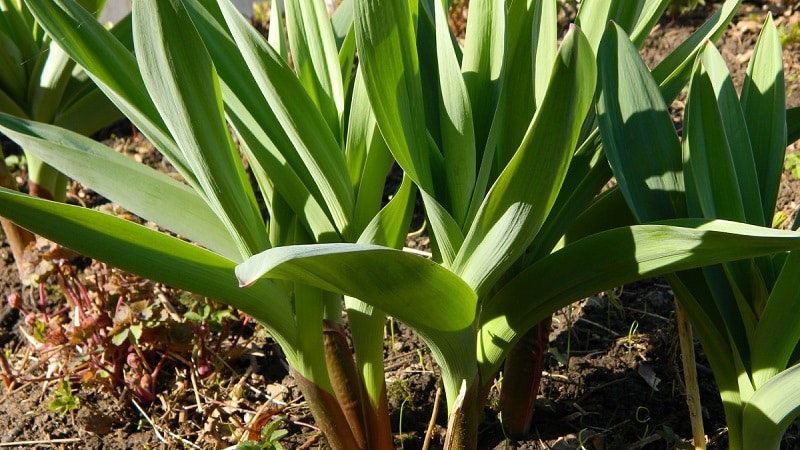
The plant produces one arrow up to 1.3 m high. At its top an inflorescence is formed in the form of a ball with small pink-violet flowers. Petals are linear, with a blunt tip. The diameter of the inflorescence is up to 15 mm. The fruit is an egg-shaped capsule, the seeds are black, triangular. The bulb is spherical, the shells are leathery, grayish.
Origin and development
Anzur grows in the foothills and mountainous regions Central and Central Asia, Tien Shan, Altai. Anzur onion is listed in the Red Book.
Interesting! According to its medicinal properties, anzur is compared with ginseng.
Mountain onions have two main varieties:
- with pronounced ribbing on the stem: Giant onion Anzur, Dutch, Yezdian, McLean onion, Pinkest onion, Suvorov onion;
- with a smooth stem surface: Aflatunsky, Vysochaishy, Rosenbakh, Zarevshansky, Stebelchaty.
Chemical composition, trace elements, vitamins, beneficial properties
The bulbs of this plant contain vitamin C (4 times more than onions), D, E, carotenoids, phytoncides, steroids, alkaloids, mineral salts. Due to the presence of saponins and a specific unpleasant odor, the vegetable is heat treated.
Beneficial features:
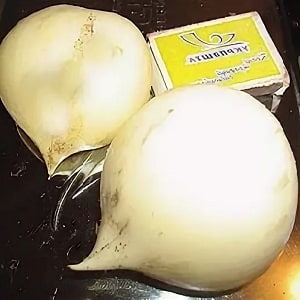 enhances metabolism, promotes weight loss;
enhances metabolism, promotes weight loss;- increases human immunity;
- prevents the aging of the body;
- has an analgesic effect;
- helps reduce blood sugar;
- used in the treatment of respiratory diseases;
- improves brain activity and improves memory.
Onion used for glaucoma, skin diseases, impotence and urolithiasis.
Important! Use with caution for people with cardiovascular diseases and those prone to allergies, as this vegetable can cause an unpredictable immune response in the body.
Ripening time and yield
Ripening lasts from late July to early August. Drying, yellowed leaves and stems are reliable signs that the onion is ready for harvest.
Average up to 6 kg of crop is harvested from 1 m².
Characteristics of the bulb, description of appearance, taste
The bulbs are large, spherical in shape, up to 8-9 cm in diameter. The shells are leathery, grayish, splitting. Consist of two or three cloves. The taste is reminiscent of fresh radish.
Growing regions and climate requirements
Suitable for growing in regions with warm or hot climates.The bred species and hybrids of this onion are able to grow in colder areas. The vegetable does not tolerate waterlogged soil, so it is not advisable to grow it in regions with frequent rains during the growing season.
Advantages and disadvantages
The main advantages of Anzur:
- A very early harvest, rich in vitamins and microelements. Onion leaves are added as a vitamin supplement to soups, side dishes, and pie fillings. Freeze for the winter.
- Resistant to diseases and pests, the plant is not afraid of frost. Even when completely frozen, the bulbs recover and sprout.
- Rich taste - ideal for preparing savory seasonings.
- Decorative function.
- Use in folk medicine.
Disadvantages of this bow:
- The first onion leaves quickly become coarse and become unsuitable for food.
- Raw bulbs are poisonous and can cause poisoning. Before use, they must be soaked in a saline solution for a month, periodically changing the water, and then eaten.
- The vegetable is afraid of moisture.
It can be useful:
Technology for planting onion sets in spring
Difference from other varieties
Anzur onion is distinguished by its height, round bulb shape and leaves that are rough to the touch. Flowers in inflorescences are pink-violet.
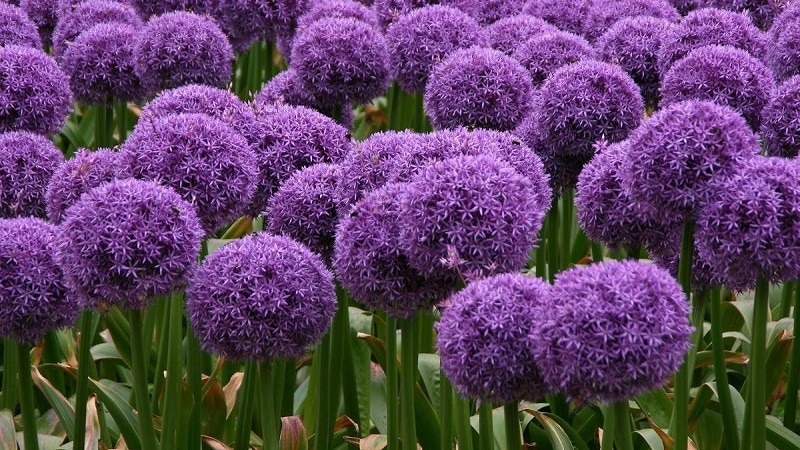
Anzur is more resistant to diseases, pests and unfavorable climatic conditionsthan onions.
Attention! Anzur should not be eaten raw or in large quantities.
Features of planting and growing
When growing mountain onions, no special measures are required on protecting plants from diseases and pests, but attention should be paid to soil preparation and fertilizing.
Preparing for landing
Prepare the beds taking into account all the characteristics of the plant:
- do not plant in places where precipitation and melt water accumulate;
- the plant is a light-loving plant, so choose a place where nothing will shade it;
- the beds are made in bulk to prevent waterlogging of the soil;
- The soil is deeply loosened and weeds are removed.
For breeding choose bulbs without visible damage, flaws and rot.
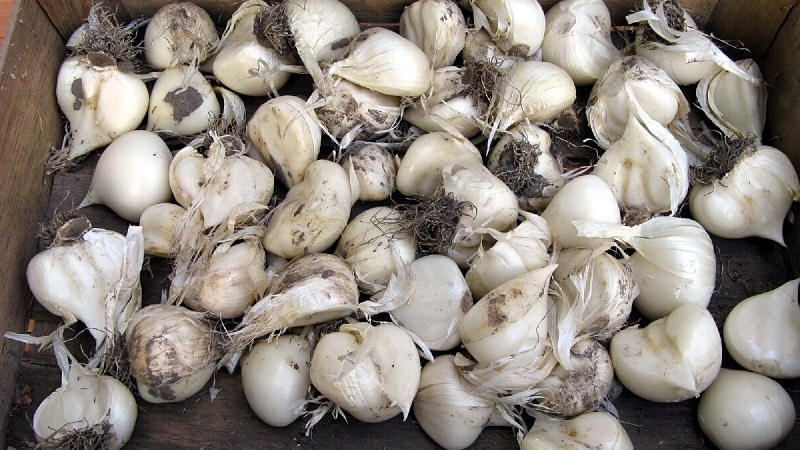
The cloves are scarified before planting. (damage the top layer) for rapid emergence of sprouts. The planting material is treated with coarse sand or cut with a knife. Breaking the bulbs is also considered scarification.
The seeds are inspected, damaged ones are removed, then soaked in a weak solution of potassium permanganate for half an hour.
Soil requirements
The soil must be fertile, deeply developed, since onion roots penetrate the ground to a depth of 50 cm. Sandy loam soils are chosen. In clay soil there is a high risk of fungal infection.
Dates, scheme and rules of planting
Onions are planted at the end of October. The distance between rows should be 30-35 cm, between plants - 20 cm. The planting depth depends on the size of the segment: large specimens are buried by 20 cm, medium ones - by 12 cm, small ones - by 7 cm.
Onion seeds are sown to a depth of 1.5-2 cm, distance between rows is 10-15 cm.
Nuances of care
Anzur is unpretentious, not afraid of harsh winters, tolerates temperatures down to –35°C. In winter it does not require additional shelter.
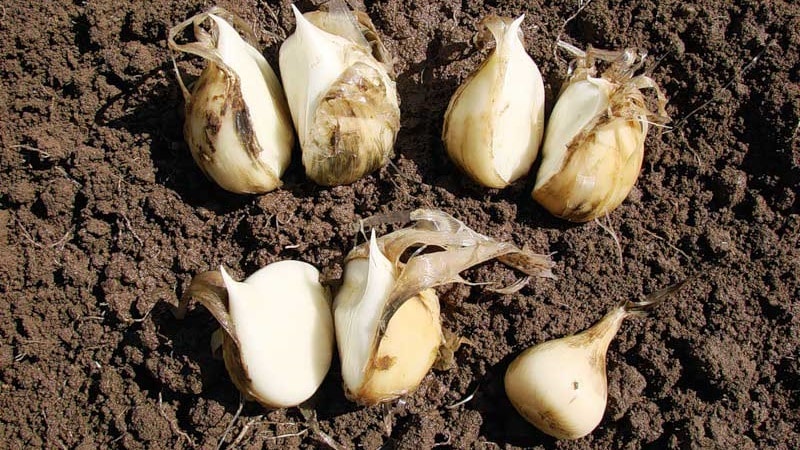
Onions have a short growing season.
To increase the volume of the bulb, the arrows with inflorescences are broken off. Yellowed leaves are removed for aesthetic reasons.
Watering mode
The plant does not like excessive moisture. Even slight waterlogging is detrimental: the bulbs will hurt and rot.Only when the weather is hot, dry, these onions are watered 1-2 times a week.
Two weeks before harvest watering is stopped.
Important! At the first appearance of signs of putrefactive processes, the affected onion is dug up.
Loosening the soil and weeding
Loosen the soil after each watering or rain. Weeds are removed immediately.
Top dressing
Anzur responds well to feeding. Fertilize it several times per season:
- The first fertilizing is carried out when the shoots appear. Nitrogen preparations and urea are used.
- The second - 2-3 weeks after emergence to enhance photosynthesis. Spray with the drug “Ferovit”.
- 14-20 days after the second feeding, the soil is enriched with ash and potassium sulfate.
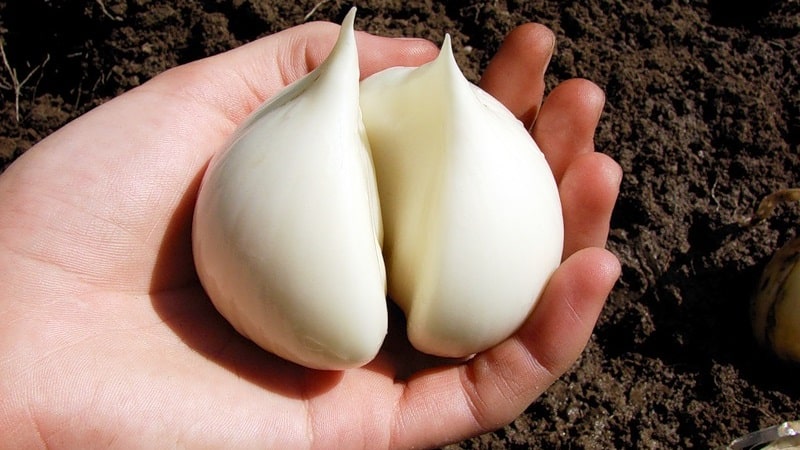
Disease and pest control
Anzur is not afraid of diseases and pests. The beds are not treated with chemicals, resulting in an environmentally friendly harvest.
Difficulties in growing
If you follow all the rules of sowing, growing and harvesting, there will be no difficulties. Every gardener can grow onions and garlic.
Read also:
Harvest and storage
The harvest is harvested in late July - early August, when the foliage dries. The bulbs are carefully dug up, the remaining leaves and roots are cut off, and about 5 cm of the stem is left. Dry it. If onions are cultivated as an ornamental plant, the bulbs are not dug up.
Seeds are collected at the end of June. They do not ripen at the same time: first in the upper part, then at the bottom. Cut off the capsules when they open - black seeds will be visible there. Umbrellas are cut with pruning shears and collected in a bunch of 10-15 pieces. The bunches are hung in a well-ventilated area.Dense material is placed under them - the best seeds will fall onto the floor. Periodically, the bundles are tapped with a hand. The seeds are then collected and packed in paper containers before sowing.
Store vegetables in paper bags in a dry, dark place.. The shelf life of onions is several months.
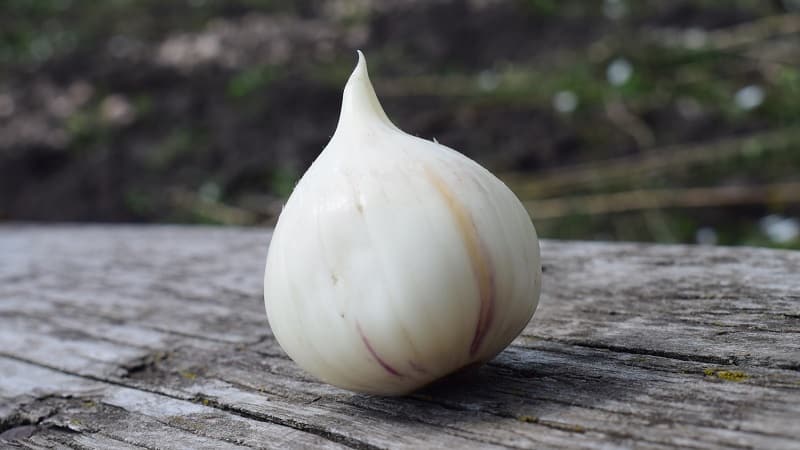
Advice from experienced gardeners
Experienced gardeners It is recommended to plant onions using bulbs or slices, since with the seed method the painstaking work will take several years. It is better to buy planting material in specialized stores.
It is recommended to make the bed highso that the water does not stagnate.
It is better to plant in the beds where they grew the previous year. potatoes, cucumbers or cabbage.
Reviews
Gardeners and housewives tell amazing stories about this unusual onion. His healing properties, taste and decorativeness do not leave anyone indifferent.
Natalia, Voronezh: “A friend treated me to an amazing seasoning. My family really liked it. A friend said it was onion-garlic. I decided to get one for myself and bought some bulbs. In early spring, onions provided vitamins. Added to salads and borscht. And in June, I did not expect to see such beauty in the garden, although I had seen a photo of anzur onions before. The flowers are small, collected in a ball-shaped inflorescence. Many bees were always circling around them. I dug up the bulbs and the harvest was amazing. A friend shared a recipe for pickling onions. Everyone in my household liked it".
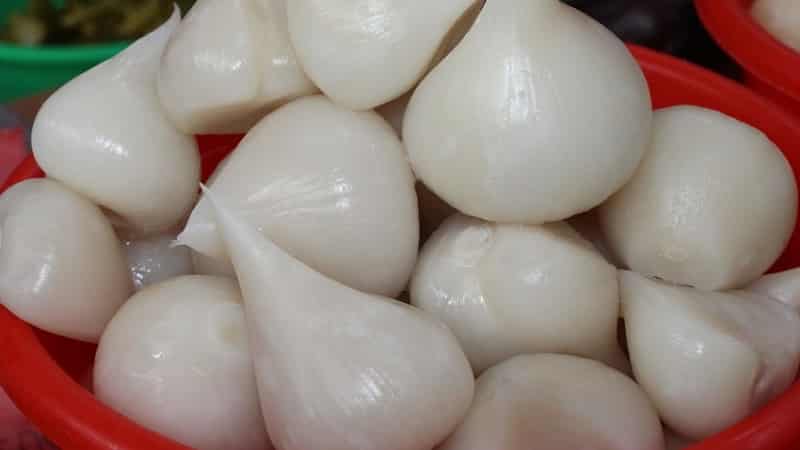
Marina Veskaya, Novosibirsk: “For several years in a row, my children suffered from colds and bronchitis in the fall. My sister recommended onion and garlic. I bought jars of pickled vegetables. You need to eat it little by little every day. Last fall, to my surprise, no one got sick.I had constant migraines, an unbearable headache, and that all went away. It’s a pity that I don’t have a dacha, I would grow it”.
Vladislav, Zarinsk: “I use onion-garlic for decorative purposes. Everyone loves blooming balls. Fits well into the landscape in front of the house".
Conclusion
Mountain garlic onions are easy to grow, care for and clean. It has a lot of medicinal and beneficial properties, which is why it is used in folk medicine. In addition, it fits perfectly into the garden landscape.